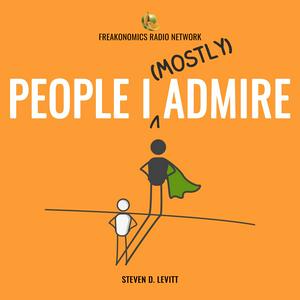Sem publicidade. Mais Prime.
Sem publicidade. Mais Prime.
Sem publicidade. Mais Prime.
Sem publicidade. Mais Prime.
O podcast começa em
- 0 seg.
6. Nathan Myhrvold: “I Am Interested in Lots of Things, and That's Actually a Bad Strategy”



People I (Mostly) Admire